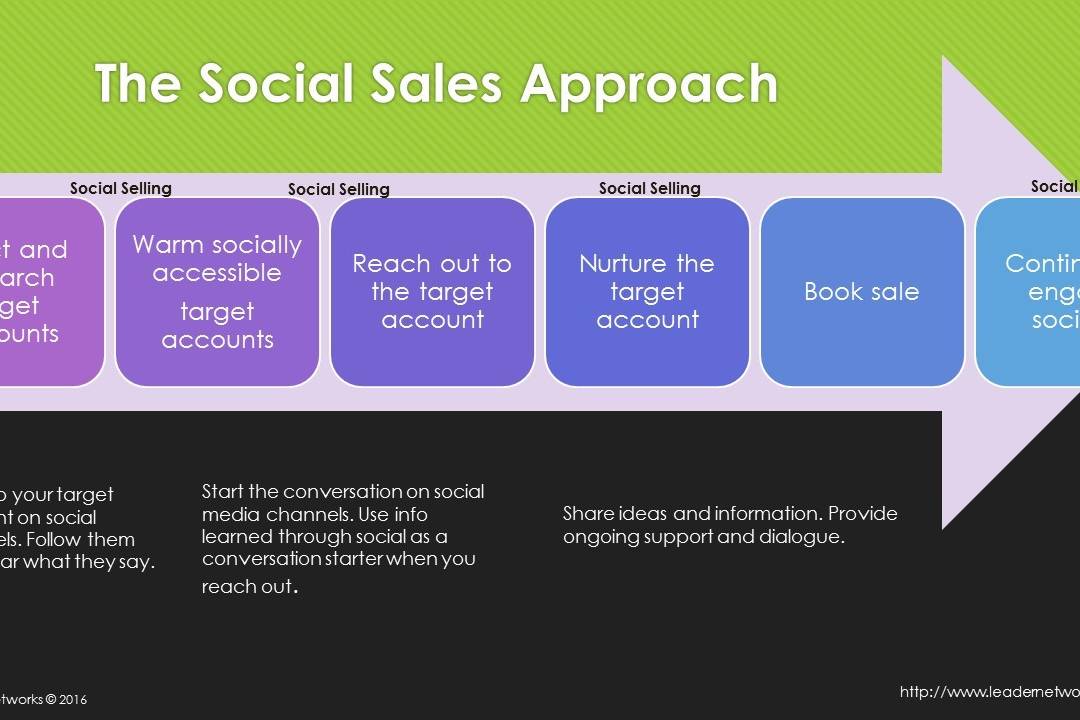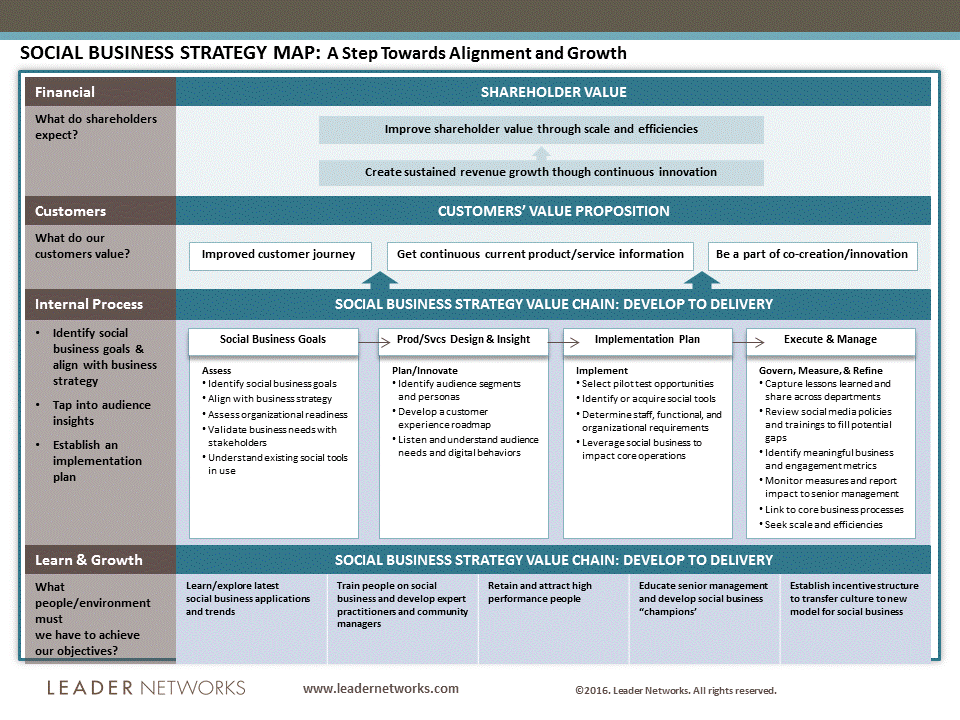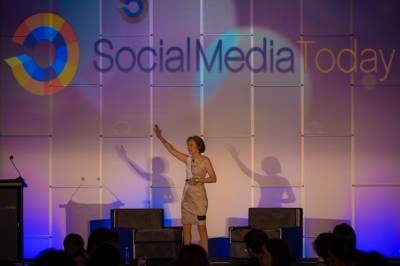 Does your IT and Marketing team collaborate on social business projects? Should they? What would happen if they did? What is the impact of IT and Marketing collaboration due to social business? These are the questions that Oracle, Leader Networks and Social Media Today examined in a recent research report entitled Socially Driven Collaboration that explores how each of these groups perceives the opportunity for increased collaboration as their organizations evolve towards becoming socially enabled enterprises. It is rather sizable mixed methods study of 925 Marketing and IT leaders from over 500 organizations around the world from over 20 industries and 52 countries and includes in-depth interviews with Paul Gillin, Shell, Chubb & Son and Whole Foods. While the study report won’t be available for download until next month, I wanted to share some of the highlights and the opportunity to listen to a webinar.
Does your IT and Marketing team collaborate on social business projects? Should they? What would happen if they did? What is the impact of IT and Marketing collaboration due to social business? These are the questions that Oracle, Leader Networks and Social Media Today examined in a recent research report entitled Socially Driven Collaboration that explores how each of these groups perceives the opportunity for increased collaboration as their organizations evolve towards becoming socially enabled enterprises. It is rather sizable mixed methods study of 925 Marketing and IT leaders from over 500 organizations around the world from over 20 industries and 52 countries and includes in-depth interviews with Paul Gillin, Shell, Chubb & Son and Whole Foods. While the study report won’t be available for download until next month, I wanted to share some of the highlights and the opportunity to listen to a webinar.
Key Findings
While Marketing has a leading role in the adoption of social channels (e.g. Facebook, LinkedIn, Twitter, YouTube) with a focus on building awareness, the benefits of increased collaboration between Marketing and IT include stronger/more compelling marketing messages and significant operational benefits, such as faster speed to market, greater product and service adoption, and fewer defects in products and services.
Social business is changing how Marketing and IT leaders work: Respondents clearly indicate social business has spurred more collaboration. In addition, it has raised awareness of the impact of thought leadership, offered an opportunity for more say in management decisions, and enabled better articulation of ROI. Finally, it has highlighted the need to acquire new skills both individually and – through new hires – for the organization as a whole.
While Marketing and IT do collaborate, both organizations report that the level of collaboration is only “adequate”: Only 36% of Marketing and 26% of IT respondents report collaborating “frequently” with each other on projects or initiatives. Marketing respondents were more likely to indicate collaborating “frequently” or “occasionally,” while IT were more likely to report collaborating “rarely” or “never.” In fact, 57% of Marketing and 50% of IT respondents classify their collaboration with each other as being “adequate,” and 16% of IT respondents report that collaboration with Marketing is “non-existent.”
Among those Marketing and IT leaders who report “poor” or “non-existent” collaboration, many recognize the benefits of collaboration but indicate that their company culture doesn’t enable it, nor do their groups make it a priority.
Marketing and IT are beginning to collaborate more, but there is plenty of room for improvement: 41% of Marketing and 38% of IT leaders report that over the last 12 months they have engaged in “more collaboration,” with the largest firms (over 50,000 employees) most likely to report an increase. However, the majority of Marketing and IT respondents (56% and 60% respectively) report “no change” in their collaborative relationships. A small number report “collaborating less.”
Increasing collaboration has a positive impact on professional effectiveness, and also offers significant operational benefits: Among those who report collaborating more, 74% of Marketing and 71% of IT leaders indicate that they are “more effective.” Other benefits reported by Marketing and IT leaders who collaborate more include stronger/more compelling marketing messages, faster speed to market, greater product/service adoption and fewer defects in products and services.
You can view the replay of the webinar here:
Warning: Attempt to read property "base" on array in /home3/trusten9/public_html/leadernetworks/wp-content/plugins/wp-user-profile-avatar/shortcodes/wp-user-profile-avatar-shortcodes.php on line 665
Warning: Attempt to read property "base" on array in /home3/trusten9/public_html/leadernetworks/wp-content/plugins/wp-user-profile-avatar/shortcodes/wp-user-profile-avatar-shortcodes.php on line 665
Warning: Attempt to read property "base" on array in /home3/trusten9/public_html/leadernetworks/wp-content/plugins/wp-user-profile-avatar/shortcodes/wp-user-profile-avatar-shortcodes.php on line 665
Warning: Attempt to read property "base" on array in /home3/trusten9/public_html/leadernetworks/wp-content/plugins/wp-user-profile-avatar/shortcodes/wp-user-profile-avatar-shortcodes.php on line 665
Vanessa DiMauro
Internationally recognized independent thought leader on social business strategy and operations with a specialty in online community. I help organizations drive top line growth through innovative digital strategy design and thoughtful execution. I have successfully led 60+ strategic social business initiatives for the world's most influential organizations over my 20 years as a social business executive and serve on a number of boards. My award-winning track-record is fueled by passion, experience and research.
My work has been covered by leading publications such as the New York Times, the Wall Street Journal and CIO Magazine and was recently named a Social Marketing Master by Forbes. As a former Executive in Residence at Babson College, Olin School of Management, I am an engaging and informational educator and keynote speaker.
Related Posts
April 18, 2016
Social Selling – Let’s Get a Few Things Straight
The first step to becoming an effective social seller is to understand that…
December 19, 2015
Robin Carey Danced on the Stage of Life
Beautiful. Visionary. Witty. Feminist. Passionate. Loved. Robin Fray Carey…


